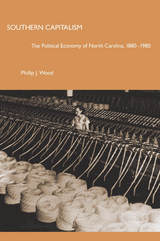
Enthusiasts and critics both have looked to the political upheavals of the 1960s to explain recent transformations in historical study. But how new, in fact, are our contemporary approaches to the study and writing of American history? This question lies at the heart of History's Memory, Ellen Fitzpatrick's sweeping study of the past century of American historical writing.
Through careful examination of hundreds of historical essays and books, Fitzpatrick has uncovered striking continuities in the writing of American history. The contributions of earlier scholars, some of them outside the mainstream of the historical profession, reveal that interest in the history of women, African Americans, Native Americans, and the working class has been long-standing. Whether in the Progressive era's attention to issues of class, or in the renewed concern with Native Americans in the 1930s and 1940s, Fitzpatrick demonstrates that over the past century historians have frequently grappled with issues that we think of today as innovative.
This reinterpretation of a century of American historical writing challenges the notion that the politics of the recent past alone explains the politics of history. Fitzpatrick offers a wise historical perspective on today's heated debates, and reclaims the long line of historians who tilled the rich and diverse soil of our past.

Newfield views management as neither inherently good nor bad, but rather as a challenge to and tool for negotiating modern life. In Ivy and Industry he integrates business and managerial philosophies from Taylorism through Tom Peters’s “culture of excellence” with the speeches and writings of leading university administrators and federal and state education and science policies. He discusses the financial dependence on industry and government that was established in the university’s early years and the equal influence of liberal arts traditions on faculty and administrators. He describes the arrival of a managerial ethos on campus well before World War II, showing how managerial strategies shaped even fields seemingly isolated from commerce, like literary studies. Demonstrating that business and the humanities have each had a far stronger impact on higher education in the United States than is commonly thought, Ivy and Industry is the dramatic story of how universities have approached their dual mission of expanding the mind of the individual while stimulating economic growth.

READERS
Browse our collection.
PUBLISHERS
See BiblioVault's publisher services.
STUDENT SERVICES
Files for college accessibility offices.
UChicago Accessibility Resources
home | accessibility | search | about | contact us
BiblioVault ® 2001 - 2024
The University of Chicago Press









